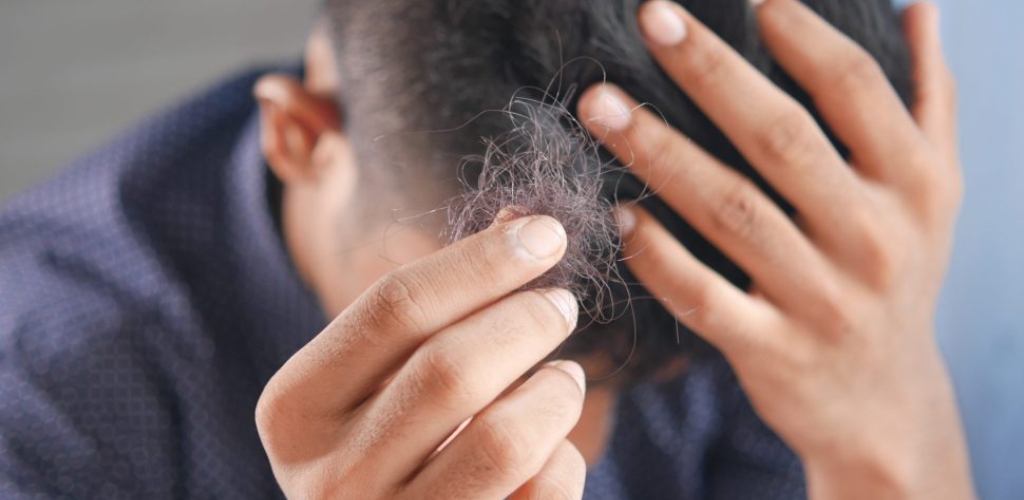Genetic hair loss, also known as androgenetic alopecia, is a common condition that affects millions of people worldwide. While it may seem like a purely physical issue, the emotional impact of hair loss can be profound, affecting self-esteem, confidence, and overall well-being. Coping with genetic hair loss requires a multifaceted approach that addresses not only the physical aspects but also the emotional and psychological consequences. In this blog, we will explore the emotional journey of genetic hair loss, discuss the importance of self-compassion and support, and provide practical coping strategies to help individuals navigate this challenging experience.
The Emotional Impact of Genetic Hair Loss
Hair loss, particularly when it is genetic, can be a devastating experience. It can lead to feelings of low self-esteem, anxiety, depression, and a loss of identity. The emotional impact of hair loss can be so severe that it affects daily life, relationships, and even career choices. It is essential to acknowledge that these feelings are valid and that seeking help is a sign of strength, not weakness.
The Importance of Self-Compassion and Support
Coping with genetic hair loss begins with self-compassion. It is crucial to practise patience, kindness, and understanding towards oneself during this challenging time. Recognizing that hair loss is a journey, not a destination, can help individuals focus on the present moment and find ways to manage their emotions.
Seeking support from trusted friends, family, or a mental health professional can be incredibly therapeutic. Sharing experiences and emotions with others who understand can provide a sense of comfort, validation, and a new perspective. Support groups, whether in-person or online, offer a platform to connect with others who are going through similar challenges, share advice, and receive emotional support.
Practical Coping Strategies
- Acknowledge and Accept Your Feelings: Recognize that your emotions are valid and that grieving your hair loss is a natural process. Denying or minimising your feelings can delay or worsen the psychological distress.
- Open Up to Trusted Ones: Share your experience with friends or family who can offer support, comfort, and a valuable perspective to help you navigate your feelings.
- Seek Professional Help: Psychotherapy, particularly cognitive-behavioural therapy (CBT), can be beneficial in managing the psychological stress of hair loss. A mental health professional can provide additional tools and techniques to cope with negative feelings and enhance self-esteem.
- Join a Support Group: Support groups provide a platform to share experiences, advice, and emotional support with people who are going through similar challenges.
- Practice Mindfulness: Mindfulness techniques, like meditation and deep breathing exercises, can help reduce stress and anxiety associated with hair loss. They promote acceptance and focus on the present moment, reducing worry about the future.
- Maintain a Healthy Lifestyle: Regular exercise, a balanced diet, and sufficient sleep can boost your mood and energy levels. Physical well-being significantly impacts mental health and resilience.
- Consider Hair Loss Treatments: Consult with a dermatologist specialising in hair loss about possible treatments. Having a plan can alleviate feelings of helplessness.
- Experiment with New Looks: Hairpieces, wigs, scarves, or hats can help you feel more confident. Use this as an opportunity to explore new styles and redefine your look.
- Focus on What You Can Control: Hair loss is often beyond your control, but many other aspects of your life are not. Focusing on areas where you can take action – like your fitness, hobbies, or personal skills – can help you regain a sense of control.
How can a therapist help with coping strategies for genetic hair loss ?
A therapist can provide valuable guidance and support in helping individuals cope with the psychological impact of genetic hair loss. Here are some ways a therapist can assist:
- Provide a safe space to process emotions: Therapists offer a non-judgmental environment where individuals can openly discuss their feelings about hair loss, such as grief, anxiety, or low self-esteem. This allows for the healthy expression and processing of emotions.
- Develop personalised coping strategies: A therapist can work with the individual to identify specific challenges they face due to hair loss and collaboratively develop tailored coping strategies. This may include techniques like cognitive-behavioural therapy (CBT) to challenge negative thought patterns and build resilience.
- Enhance self-acceptance and self-compassion: Therapists can help individuals cultivate self-acceptance and self-compassion, recognizing that hair loss does not define their worth or attractiveness. This shift in perspective can significantly improve self-esteem and confidence.
- Provide psychoeducation: Therapists can educate individuals about the psychological impact of hair loss and normalise their experiences. This understanding can help reduce feelings of isolation and provide a framework for coping.
- Suggest lifestyle modifications: Therapists may recommend lifestyle changes, such as stress management techniques, regular exercise, and a balanced diet, to support overall well-being and resilience in the face of hair loss.
- Encourage social support: Therapists can help individuals communicate their needs to loved ones and build a supportive network. They may also suggest joining support groups to connect with others experiencing similar challenges.
- Explore alternative treatments: In collaboration with dermatologists, therapists can discuss potential hair loss treatments and their psychological implications. This allows individuals to make informed decisions about their care.
By working with a therapist, individuals can develop a comprehensive approach to coping with genetic hair loss, addressing both the emotional and practical aspects of this challenge. The guidance and support provided by a therapist can significantly improve overall well-being and quality of life.
Conclusion
Genetic hair loss is a common condition that affects not only physical appearance but also emotional well-being. Coping with hair loss requires a combination of self-compassion, support, and practical strategies. By acknowledging and accepting your feelings, seeking help when needed, and practising mindfulness and self-care, you can navigate the emotional journey of hair loss with greater ease. Remember, hair loss does not define your worth or attractiveness. Instead, focus on self-care, surround yourself with a supportive network, and cultivate a positive mindset to lead a fulfilling life despite hair loss.
References:
[1] Stronger Minds. (n.d.). How to Cope with the Psychological Stress of Hair Loss. Retrieved from <https://strongerminds.co.uk/how-to-cope-with-the-psychological-stress-of-hair-loss/>
[2] WebMD. (n.d.). Coping With The Pain of Hair Loss. Retrieved from <https://www.webmd.com/skin-problems-and-treatments/hair-loss/features/coping-with-pain-of-hair-loss>
[3] Hair Loss Clinic. (n.d.). Understanding Baldness: Causes, Treatments, and Coping Strategies. Retrieved from <https://hairlossclinic.ca/understanding-baldness-causes-treatments-and-coping-strategies/>
[4] ReNewMD Wellness. (n.d.). Understanding the Effects of Hair Loss. Retrieved from <https://renewmdwellness.com/blog/the-psychological-effects-of-hair-loss-and-how-to-cope-with-hair-loss/>
Citations:
[1] https://strongerminds.co.uk/how-to-cope-with-the-psychological-stress-of-hair-loss/
[2] https://www.webmd.com/skin-problems-and-treatments/hair-loss/features/coping-with-pain-of-hair-loss
[3] https://hairlossclinic.ca/understanding-baldness-causes-treatments-and-coping-strategies/
[5] https://www.healthline.com/health/how-to-regrow-hair-on-a-bald-spot




